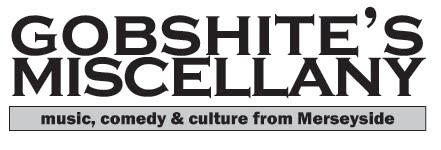
"Historians who don't reflect on the present when writing about the past err on the side of austerity." Roy Foster
PROFESSOR Roy Foster is one of Britain and Ireland's foremost historians and literary scholars and an often controversial figure for his willingness to challenge the dogmas and sacred cows of modern Ireland.
Tonight he gave a wonderful lecture for the second John Kennedy Memorial Lecture at the University of Liverpool's Institute of Irish Studies.
Often portrayed as one of the revisionist historians of the 1980s/90s, his mass of superb books, essays and papers on a wide variety of figures from Charles Stewart Parnell to Randolph Churchill to his acclaimed 2005 biography of WB Yeats, his is a constantly challenging critique of how Ireland sees itself and its history.
Introduced by his close friend Marianne Elliott, a formidable historian of international renown herself and the director of the Institute, Foster's lecture was a master class in public intellectualism drawing on a wide variety of sources and jumping seamlessly from century to century and joining up dots previously disconnected.
Among the more memorable of his many points this evening was on the parallels between Ireland, the wider British Isles and the Balkans, asserting that Troubles-era Northern Ireland which had previously been seen as backward and atavistic to the world suddenly became a kind of template for the re-emergence of toxic nationalism at the outbreak of civil war in the former Yugoslavia.
While he poured scorn on some of the many parallels drawn, he said the comparison of Wales to Montenegro held some water as, 'they are both mountainous countries where the people have to endure bearded clerics reciting interminable swathes of poetry.'
His challenging view of the toxic and even benign nationalisms which constantly cry about the damage done in Ireland by the British introduced an assertion that these critics have overlooked one major point: that they have 'forgotten that much of Ireland's success is thanks to possession of an international language in the late 20th Century and in the time of the emigrants from the late 19th century onwards,'.
Much of his focus was on the shared mythologies or agreed narratives that come together to form national identities, and the fact that these can change and be manipulated at times of change.
He cites the fact that Irish nationalism no longer relies on a tribal Celtic purity as it once did and that Ireland has made much currency out of the myth of the Irish as being the blacks of Europe (as seen in Roddy Doyle's canon) - downtrodden but rebellious people, and intensely cool with it.
He drew prescient international parallels the best of which concerned how the protests against JM Synge's The Playboy of the Western World by Arthur Griffith's newly formed Sinn Fein in 1907 for the play's portrayal of backward country folk was replicated almost perfectly in Bulgaria when it was performed there in translation in 2007.
His reminiscence of watching British and Irish politicians fall back on to accepted national characteristics at a secret conference in 1982 was tremendously enlightening about the implicit roles we assume as political actors on the macro and micro levels. While the Brits turned into almost toffish Wodehouse creations, John Hume played rebel songs on the piano. It doesn't need further explication.
Ultimately, Foster's work may not provide many easy solutions to the problems of modern Ireland or of identity in post devolution Britain, but it highlights the many myths that have got us into difficulty in the first place.

No comments:
Post a Comment